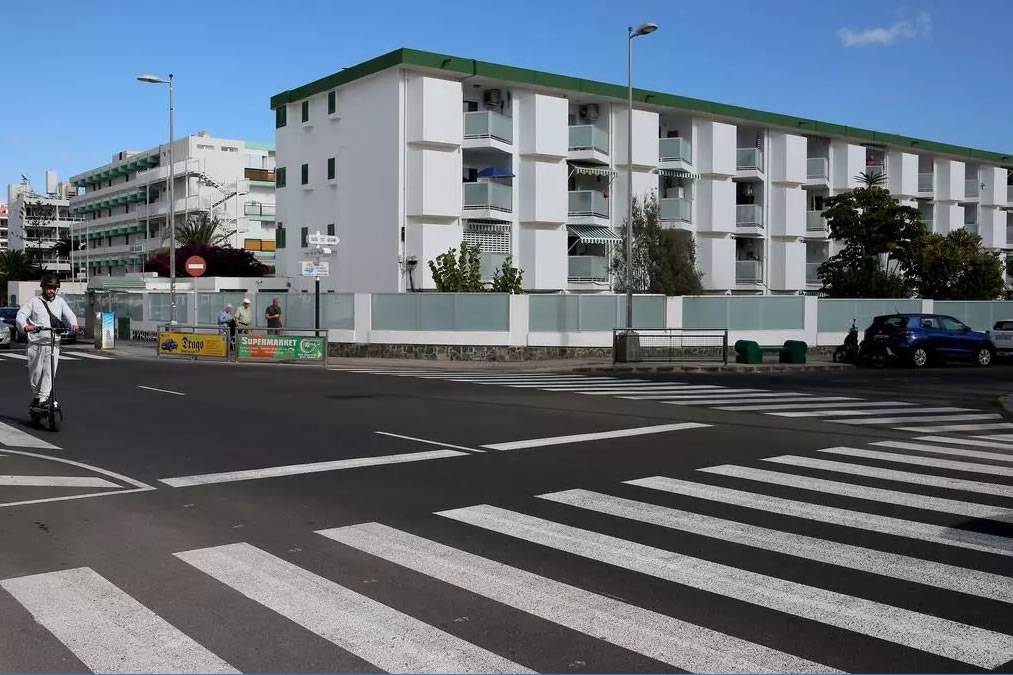Wave of fines for residents living in apartments on holiday complexes
- 24-02-2025
- National
- Canarian Weekly
- Photo Credit: CA
Residents in the Canary Islands continue to receive fines for not complying with the 2013 Tourist Law, which requires certain apartments to be rented out for tourism rather than personal use. One of the affected property owners, says they have exhausted all legal avenues and are now required to pay over €2,000.
The tourism authorities argue that the fines are based on municipal reports which determine whether a property is located in a designated “tourist complex.”
A Law That Prevents People from Living in Their Own Apartments
Among those impacted by the law is Antonia, a widow with a disability, who recently received a fine of €2,250. “I have a deadline to pay, and I’m gathering the money, but it’s not easy,” she explains. She is just one of thousands affected by the regulation, according to the Platform for Affected Residents (PALT), which maintains a register of those who have received sanctions or are under investigation.
Many residents are unaware that they have been fined, as notifications are being published in the official government bulletin (BOC) rather than being sent directly. “Yesterday, we realised that there were already around 80 payment notices issued,” says Maribe Doreste, a spokesperson for PALT. Some, like the residents of the Las Algas complex in Maspalomas, have received the fines directly, without prior warning.
Antonia originally purchased her apartment with her life savings and a mortgage. “Now I find myself in this situation, and I don’t understand it,” she says. She has since moved in with her daughter to avoid further penalties, which could escalate to €30,000 or even €300,000. “I was lucky to have my daughter to help me, but what if I had no one?” she asks. While she does not oppose others using their properties for tourism, she insists on her right to live in the home she purchased.
The Legal Basis of the Fines
The official reasoning for Antonia’s fine is that she has not adhered to the designated use of her property. The authorities claim that her apartment must be used exclusively for tourism, with a registered operator managing the lettings. The local council confirmed that the area is classified for tourist accommodation, meaning that residential use is prohibited.
This policy is based on the 2013 Tourism Law, which aimed to maintain specific areas for tourism and prevent residential occupation. Although a 2017 law allowed some long-standing residents to remain, this exception does not extend to heirs or new buyers. In Antonia’s case, officials determined that she had not sufficiently proven that her apartment was being used for residential purposes before the cut-off date.
Antonia insists that she has never rented out her property. “It has never been advertised, never been available for short-term rental. I bought it to live in,” she states. She also highlights that those who do rent out their apartments through authorised operators receive as little as €300 per month, with no right to manage the property themselves.
The fine she received is classified as a “very serious” offence, which can carry penalties ranging from €30,001 to €300,000. However, she was issued a lower fine of €2,250.
A Fight for Property Rights
Determined to defend her rights, Antonia has joined the Platform for Affected Residents, which urges those fined to take immediate action. “People are getting fined without even knowing about it because the notifications are published in official bulletins rather than sent directly,” warns Doreste.
Affected residents are also questioning why they were not warned when they purchased their properties. “Why didn’t the notary tell me? Why didn’t they inform me that my property rights in the Canary Islands were not secure? Why did I buy something I am not allowed to live in?” These are just some of the questions raised by members of the platform.
Tourism Authorities Defend the Sanctions
The Canary Islands’ Department of Tourism insists that the law does not force people out of their homes or require them to hand over their keys to a tourism operator. They argue that penalties are only issued for properties located on land or complexes designated for tourism.
The department, led by Jéssica de León, emphasises that land use regulations must be respected, as they are in place throughout Spain. The councils of San Bartolomé de Tirajana and Mogán have committed to reviewing the zoning rules, which could temporarily halt some fines. However, any existing penalties are based on municipal reports confirming that the properties are designated for tourism use.
Ombudsman Challenges the Ban on Residential Use
Despite the government’s stance, a 2019 report from Spain’s Ombudsman recommended that the Canary Islands authorities either recognise residents’ rights to stay or compensate them. The report stated that “there is no sufficient legal basis to claim that residential use is prohibited,” arguing that it cannot be banned based solely on zoning rules.
Some local authorities have taken steps to address the issue. In 2024, the council of San Bartolomé de Tirajana began drafting a municipal ordinance that would allow both residential and tourism use of properties. PALT representatives argue that before 2013, communities had control over whether their apartments could be used for tourism.
Opposition to the Holiday Rental Law
In addition to fighting the 2013 law, the platform is actively protesting against the new Holiday Rental Law proposed by the Canary Islands government. Critics argue that it repeats the same mistakes, treating privately owned properties as “tourism units” rather than homes. “This new law targets residents and property owners yet again,” warns Doreste.
“We support those who want to engage in holiday rentals, especially in coastal areas across the Canary Islands,” she states. “But this law is a Trojan horse, it is designed to strip us of our rights.”
For now, residents like Antonia are left to fight a costly legal battle to defend their homes, as fines continue to be issued across the islands.
Other articles that may interest you...
Trending
Most Read Articles
Featured Videos
TributoFest: Michael Buble promo 14.02.2026
- 30-01-2026
TEAs 2025 Highlights
- 17-11-2025



























































